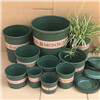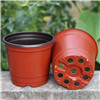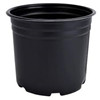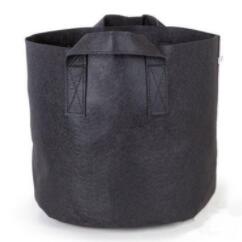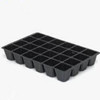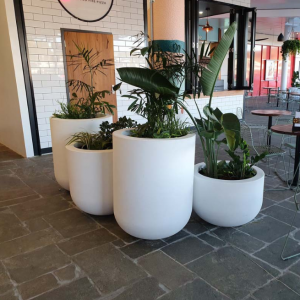Introduction: Non-woven flower pots are not only eco-friendly but also scientifically designed to promote healthy plant growth. Understanding the science behind these innovative pots provides valuable insights into their advantages over traditional containers. In this blog, we delve into the science behind non-woven flower pots and how they contribute to optimal plant health and development.
- Air Pruning and Root Structure: Non-woven flower pots facilitate air pruning, a process that occurs when plant roots come into contact with air. When roots reach the pot’s porous walls, they are exposed to oxygen, causing the tips to dehydrate and naturally die off. This air pruning stimulates the growth of lateral roots, resulting in a more fibrous and dense root system. A robust root structure enhances nutrient uptake and overall plant health.
- Enhanced Nutrient Absorption: The air-pruned root system in non-woven flower pots allows plants to absorb nutrients more efficiently. With more fine root hairs distributed throughout the soil, plants can access a larger area for nutrient uptake, leading to healthier growth and better utilization of available nutrients.
- Water Regulation: The breathable nature of non-woven flower pots ensures proper water regulation. Excess water drains through the porous walls, preventing waterlogging and the development of anaerobic conditions. This feature reduces the risk of root rot and provides a consistent moisture level ideal for healthy plant growth.
- Temperature Regulation: Non-woven flower pots offer temperature regulation benefits. Their breathable design allows for better air circulation around the root zone, preventing overheating during hot weather. This temperature moderation protects the roots from heat stress and maintains an optimal growth environment for plants.
- Biodegradability and Soil Enrichment: As non-woven flower pots biodegrade over time, they contribute to soil enrichment. The breakdown of the pot’s organic materials releases nutrients back into the soil, promoting a healthy soil ecosystem and supporting the growth of future plants.
Conclusion: Non-woven flower pots are not only environmentally friendly but also scientifically designed to promote healthy plant growth. The process of air pruning, enhanced nutrient absorption, water and temperature regulation, as well as biodegradability, all contribute to creating an optimal environment for plants to thrive. Embracing the science behind non-woven flower pots enhances gardening practices and encourages sustainable and healthy plant development.



